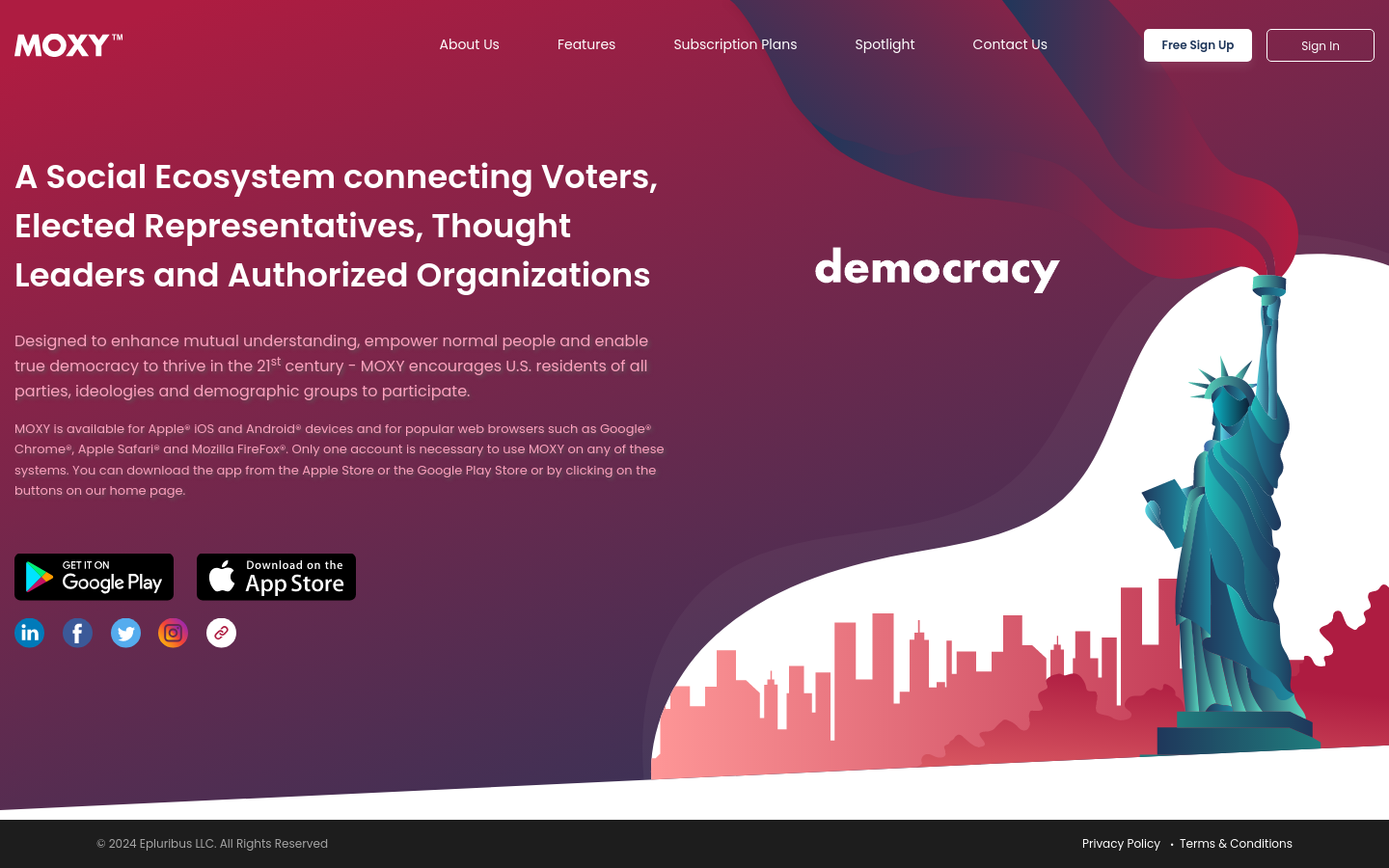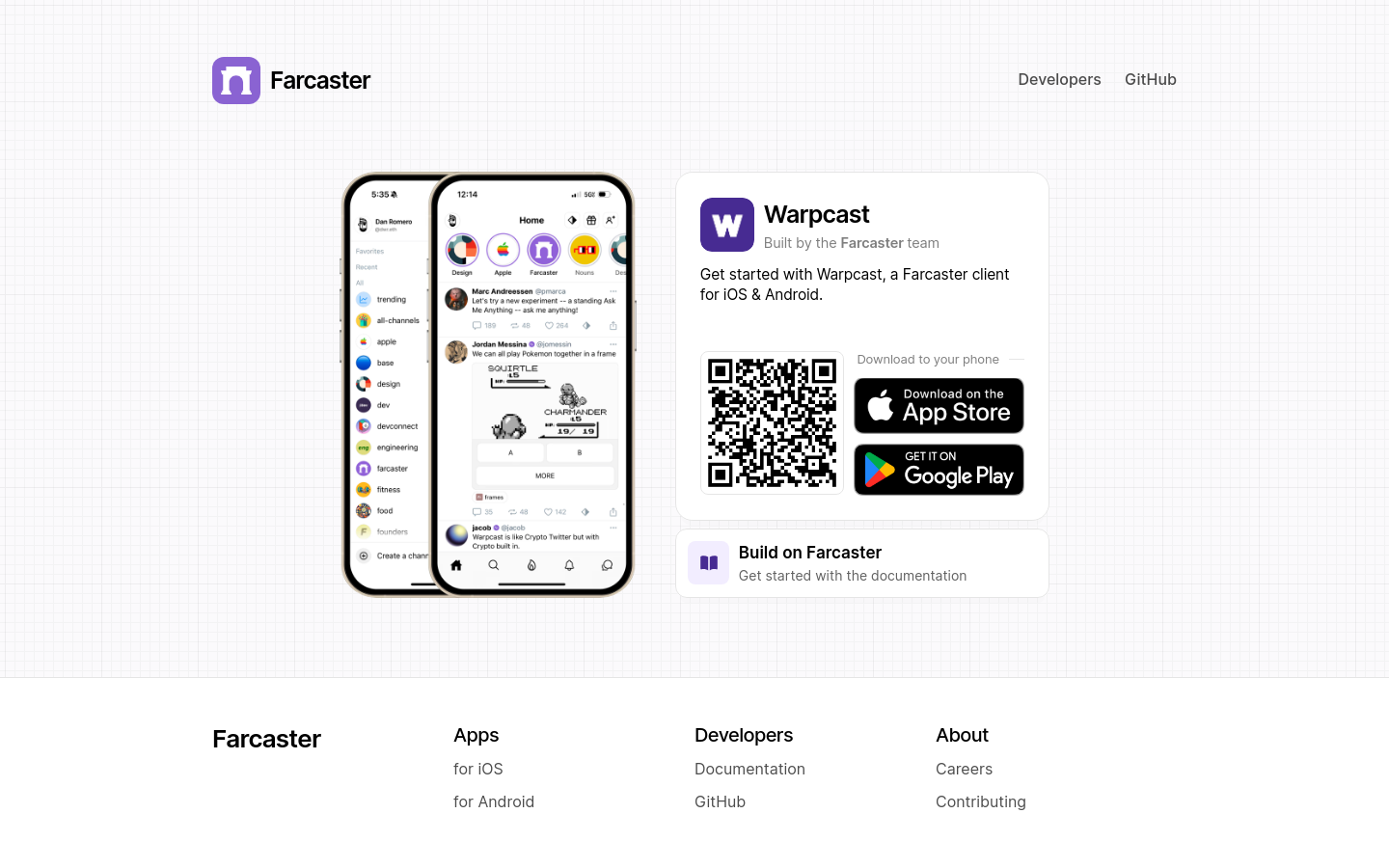Civic Tech Field Guide
Sharing knowledge and productively growing the fieldSearch 12458 projects
Showing 12458 Results

Shasta Scout
Redding, CAShasta Scout strengthens democracy by providing access to trustworthy information in a way that deepens and empowers engagement with the news, neighbors, and people in power for readers in Shasta County, Calif.

The Land
Cleveland, OHThe Land is a local nonprofit news organization that reports on Cleveland’s neighborhoods. Through in-depth solutions journalism, it aims to foster accountability, inform the community, and inspire people to take action.

San Miguel Basin Forum
Nucla, COSan Miguel Basin Forum covers all sides of issues respectfully and gives a voice to all community members in the West End of Montrose and San Miguel counties.

VoteRaiser
United States of America (the)VoteRaisers empower your supporters to reach out directly to their Democratic friends—encouraging them to register, volunteer, and VOTE for Democrats!

Alaska News Coalition
Juneau, AKThe Alaska News Coalition's mission is to support the continuation of local, rural, news in Alaska.

The Providence Eye
Providence, RIThe Providence Eye is a nonprofit journalistic initiative devoted to informing and empowering the public about events and issues of concern to residents and visitors of Providence, R.I., and its environs.

Uvalde Leader-News
Uvalde, TXThe Uvalde Leader-News is a locally owned newspaper covering Uvalde County, Tex., and it is the region's primary public information source. The Leader-News believes that freedom of the press is paramount to preserving the rights guaranteed under the First Amendment. Empowered by that freedom and its responsibility, the Leader-News pledges that its reporting will be impartial regardless of party, sect, or special interests.

The Nome Nugget
Nome, AKThe Nome Nugget, Alaska’s oldest newspaper, has been in circulation since 1900. The Nome Nugget is the trusted sole source of locally and regionally relevant news for more than 10,000 people living in a vast and isolated area of western rural Alaska; its mission is to seek the truth and report it.

2PuntosPlatform
Delanco, NJ2PuntosPlatform uses journalism as a tool for social change with a focus on Latine and Caribbean communities and their migration processes. Through connections and collaborations with these communities, it strives to reduce ideological gaps between immigrants and Americans and to foster mutual respect and understanding.

KCAW Raven Radio
Sitka, AKKCAW Raven Radio provides creative community media with diverse programming and fair and accurate news to strengthen community as measured by continued audience, donor, and volunteer participation.

Santa Cruz Local
Santa Cruz, CASanta Cruz Local produces fair and accurate local journalism that holds power to account.

North Carolina Health News
Chapel Hill, NCNC Health News breaks down how health policies affect its readers. As an advocate for patients, NC Health News employs the highest ethical standards of fairness, accuracy, and extensive research, uncovering, investigating, and writing stories that no one else is reporting.

Lab Cultural Ciudadano (LABNL)
MonterreySomos un espacio público de producción cultural abierta en dónde todas y todos podemos colaborar, experimentar y prototipar proyectos para el bien común.

Party Data Trust
43, Susaek-ro, Seodaemun-gu, Seoul, Republic of Korea데이터트러스트는 공익 단체, 공공 기관, 시민, 연구자 등 다양한 주체들이 함께 공익 데이터를 생산, 관리, 공유하는 데이터 거버넌스 체계를 만듭니다. (DataTrust creates a data governance system in which various entities, including public interest organizations, public institutions, citizens, and researchers, work together to produce, manage, and share public interest data)

"Importantly, people experiencing distress are more likely to engage in collective action on climate change or express a willingness to do so, even when controlling for several correlates of environmental behavior"
Tech Policy Press is tracking laws and regulations, along with government investigations and litigation, that will shape the rules and accountability for tech companies.

캠페인즈에 뱃지가 생겼어요! (Campaign badges)
43, Susaek-ro, Seodaemun-gu, Seoul, Republic of KoreaGamification features on the Parti Campaigns platform

A nonprofit media and community venture intended to provoke new ideas, debate and discussion at the intersection of technology and democracy.

Fellowship for Maintainers
Germany (Deutschland)A pilot program to pay maintainers of critical open source technologies.

Working for an MP (w4mp)
Parliament Square, London, UKThe Working for an MP website is a resource for anyone working for a British Member of Parliament or with an interest in how Parliament works.

Bad Matt
Burlington, VTA "protest plugin" that allows Wordpress administrators to set their Stripe plug-in's to credit referral payments to their own accounts.

w4mpjobs
LondonWelcome to w4mpjobs, funded by the House of Commons to provide career development opportunities for those working for MPs and those who are looking for a job with an MP or in other areas of political activity.

Economic Change Unit
LondonThe Economic Change Unit (ECU) campaigns to change the way the economy works so that everyone has the freedom and security to

As an academic community that believes in technology’s potential to have a positive impact on public life, Missouri S&T is honored to be recognized as a member of the Public Interest Technology University Network (PIT-UN).

The AI Governance Fellowship is a pioneering program dedicated to advancing the fairness and integrity of AI technologies in the Global South, with a focus on African nations.

This is a collective of dedicated individuals and organizations committed to fostering ethical AI practices, encouraging research, and addressing the societal implications of AI across Africa and largely the Global South.

A grassroots interdisciplinary responsible AI lab for Africa and the Global South. Researching technical alignment and governance of AI.

The Rural Infrastructure Challenge Summit is an in-person mentoring event and workshop to inspire the next-generation of solvers in rural communities.

MOXY
Washington, DCA Social Ecosystem connecting Voters, Elected Representatives, Thought Leaders and Authorized Organizations

The project will establish a workshop to bring community-centered planning to the emerging technology of autonomous vehicles (AV)

The White House (u/whitehouse) on Reddit
1600 Pennsylvania Avenue Northwest, Washington, DC, USAThe official Biden-Harris administration Reddit account, launched to provide updates on Hurricanes Milton and Helene

Activists Resource Hub
United Kingdom of Great Britain and Northern Ireland (the)We’ve put this guide together to point you to some of the brilliant resources available for UK activists.

ForHumanity
New York, USATo examine and analyze the downside risks associated with the ubiquitous advance of AI & Automation, to engage in risk mitigation and ensure the optimal outcome… ForHumanity.

Science Secretary launches new Regulatory Innovation Office to speed up public access to new technologies

FEMA Hurricane Rumor Response
Washington, DCThe US government's emergency response department has taken to the internet to fight an unprecedented amount of information about 2024 hurricanes.

Hand-written Petition Scanner
Newspeak House, Bethnal Green Road, London, UKAn AI-powered tool designed to efficiently digitize handwritten petition sheets, transforming them into organized, upload-ready CSVs to streamline data management and optimize volunteer efforts.

Operation Black Vote
LondonWe are on a mission to amplify Black* voices and ensure our complete engagement in the national debate about how to build a better Britain founded on accessible citizenship, judicial rights, climate and racial justice, equality, and fairness.

America's Healthy Democracy Ecosystem Map
Washington, DCOur goal is to identify, categorize, and quantify existing organizations, networks, and funders who work to promote and protect healthy democracy in America. We aim to create a compelling, interactive resource that educates and empowers users to engage in democracy.

Starlink cellular connectivity in disasters
Redmond, WASpace X's Starlink unit was granted permission by the US FCC to activate a satellite connectivity option for Americans in hurricane zones

U.S. Democracy Hub
Brooklyn, NYThe most comprehensive, insightful, and accessible data platform for the U.S. nonprofit Democracy field.

Base de Dados Social
LisbonMoved by these challenges, Nova SBE’s team, represented by the Nova SBE Data Science Knowledge Center, started mapping the social ecosystem by creating a public and easily accessible platform aimed at providing quality information in a simple, intuitive, complete, and fair way about all social and environmental impact organizations in Portugal.








